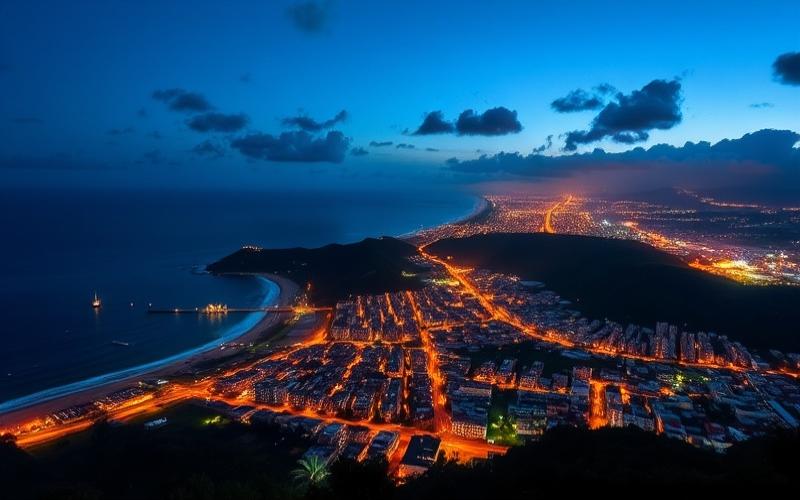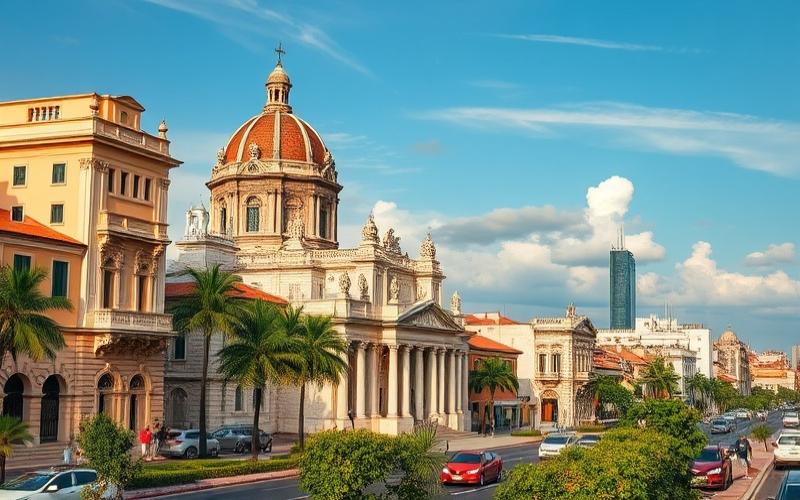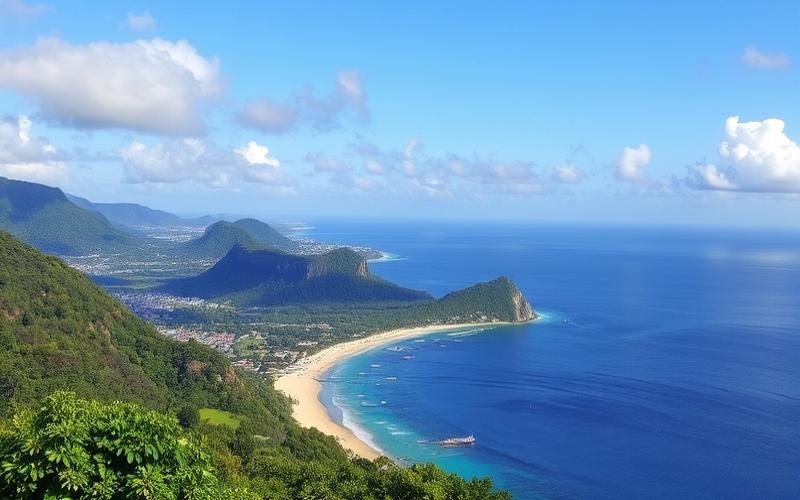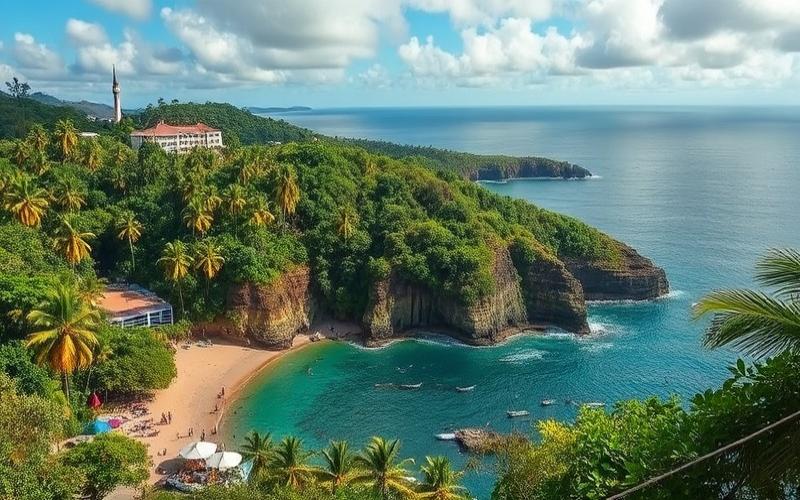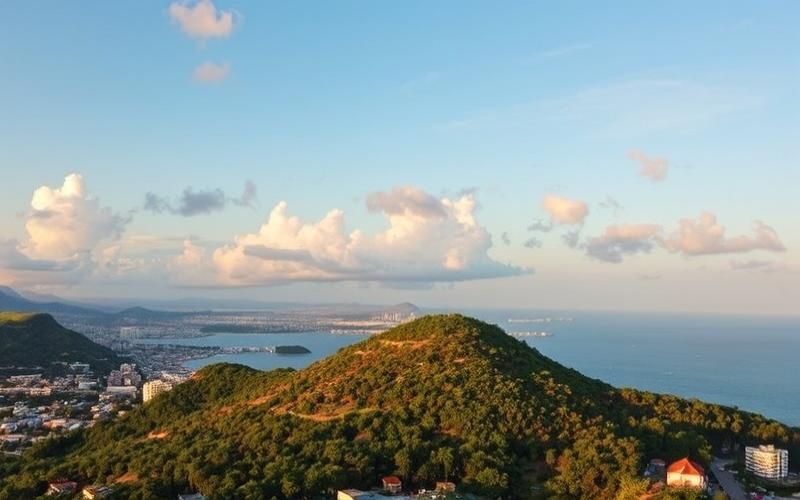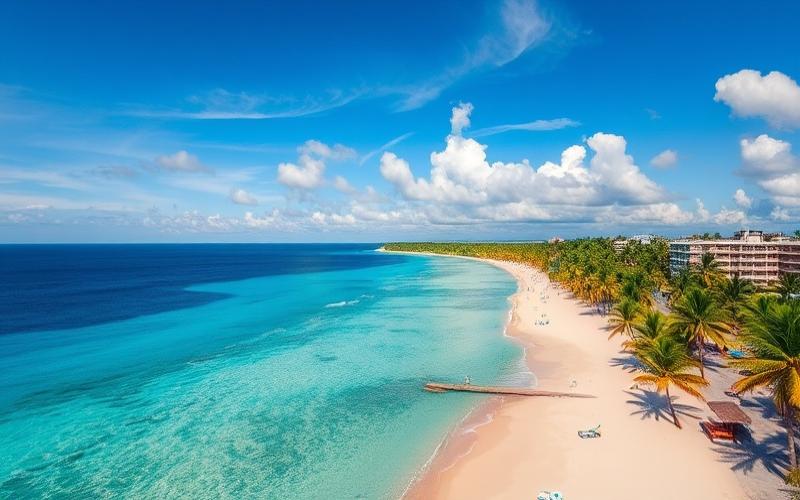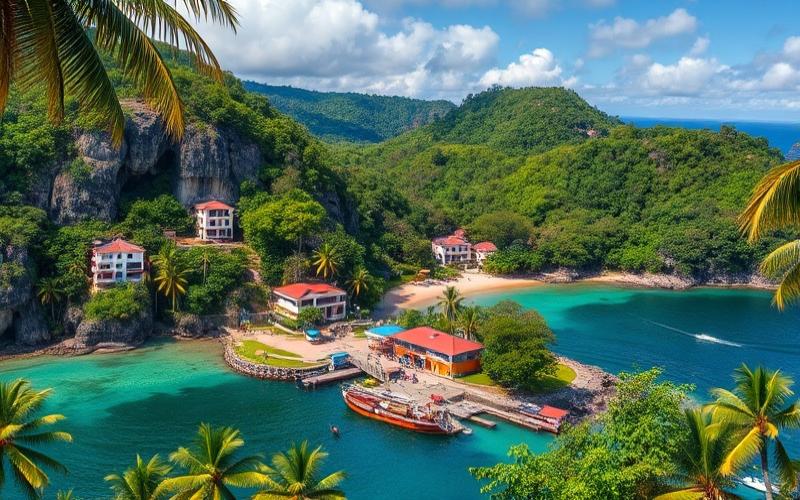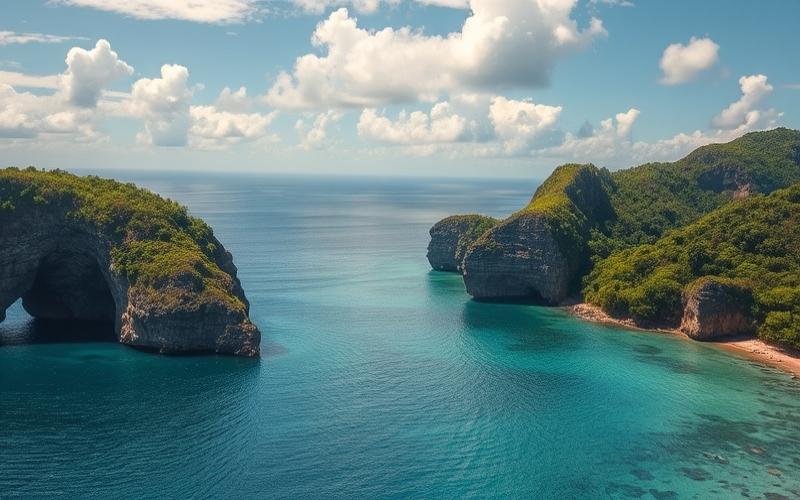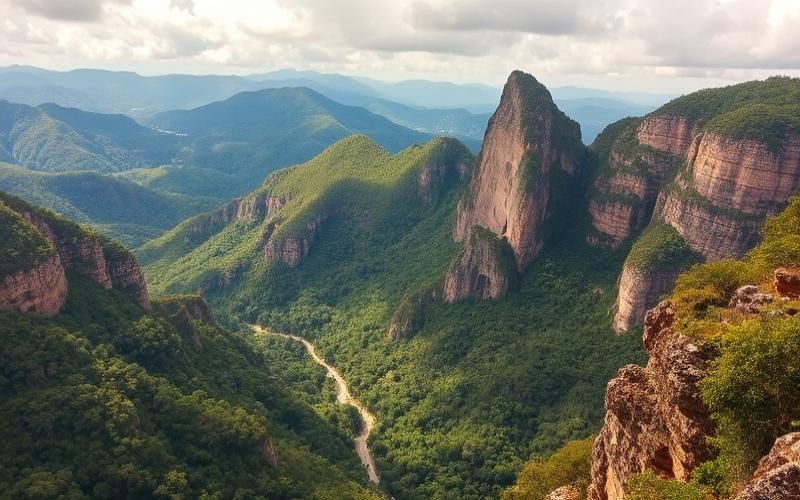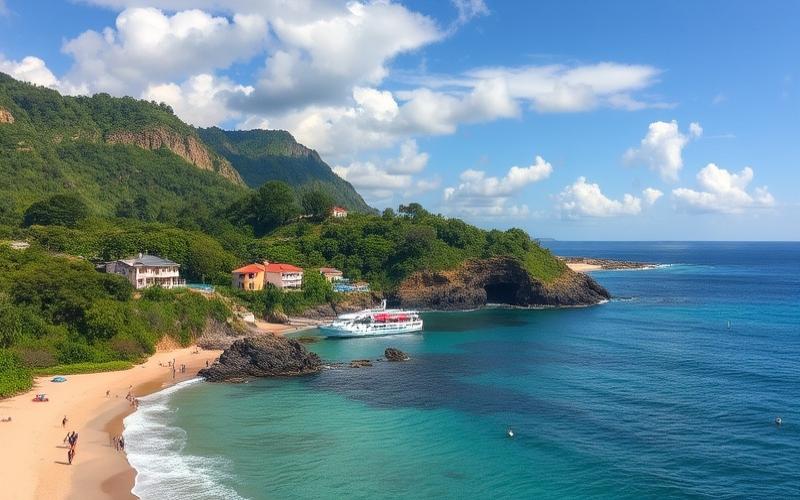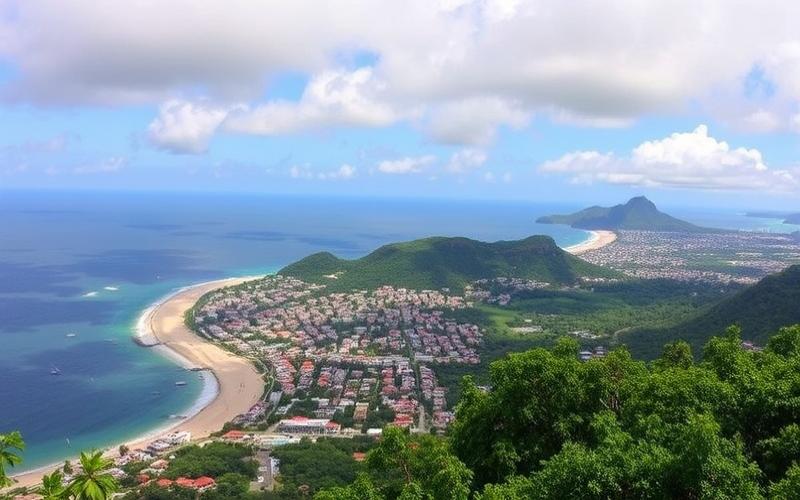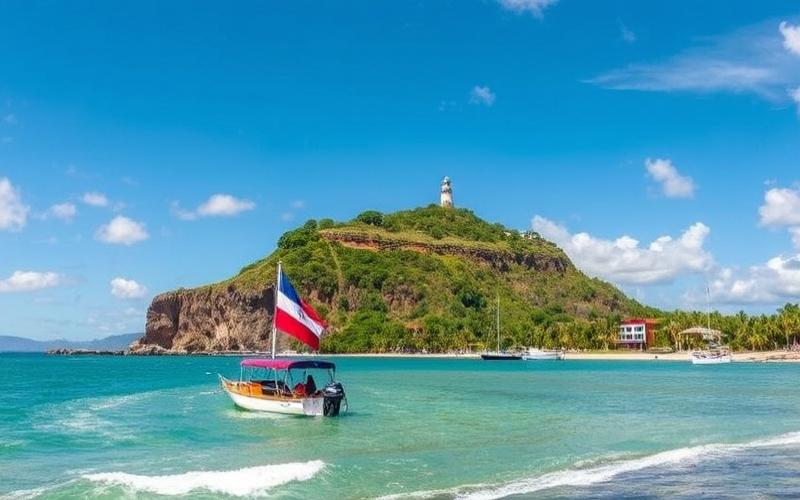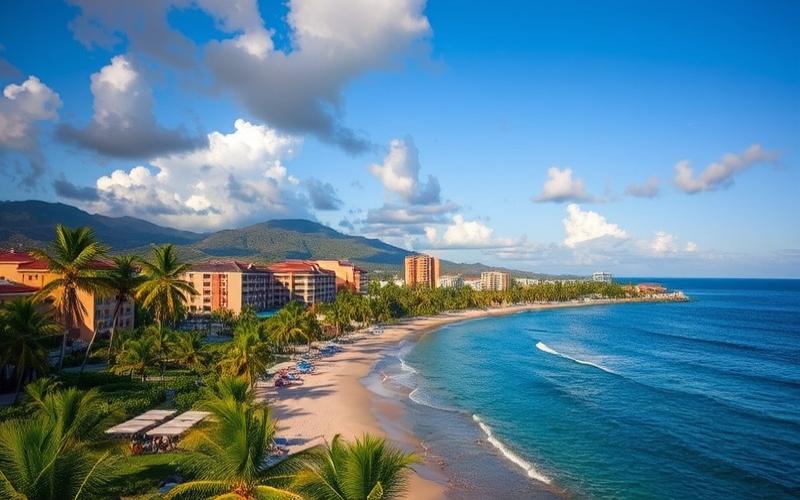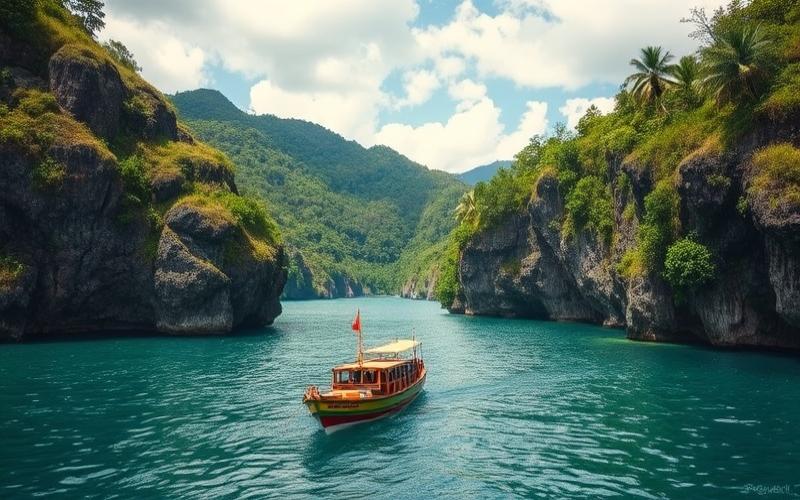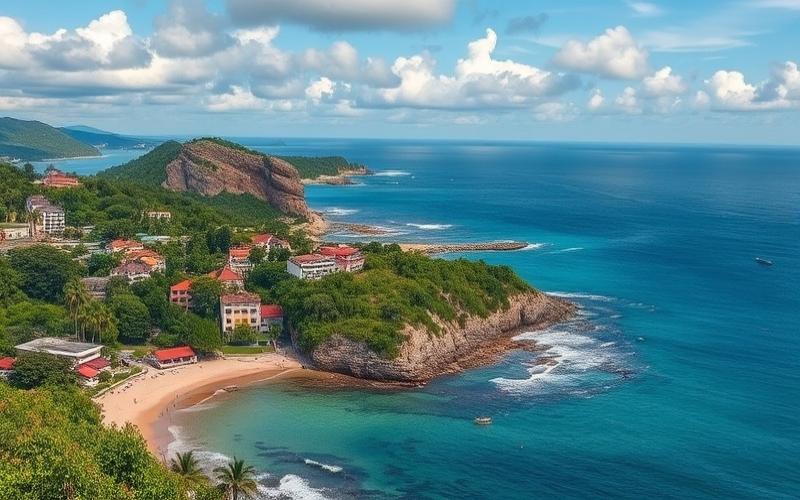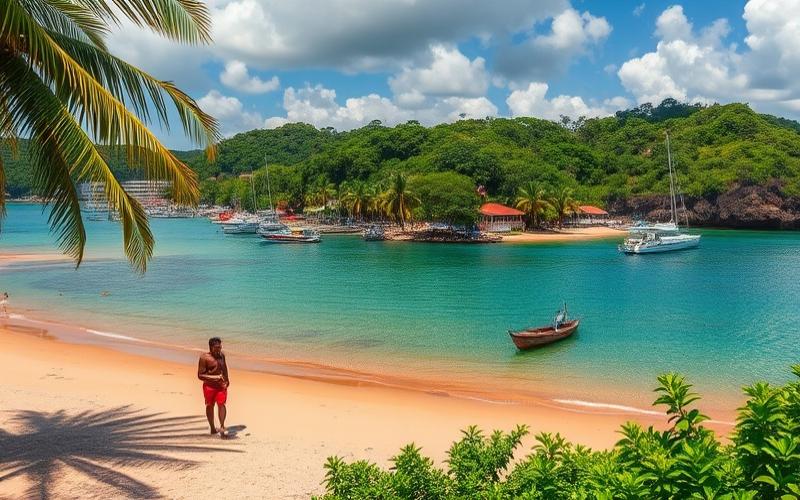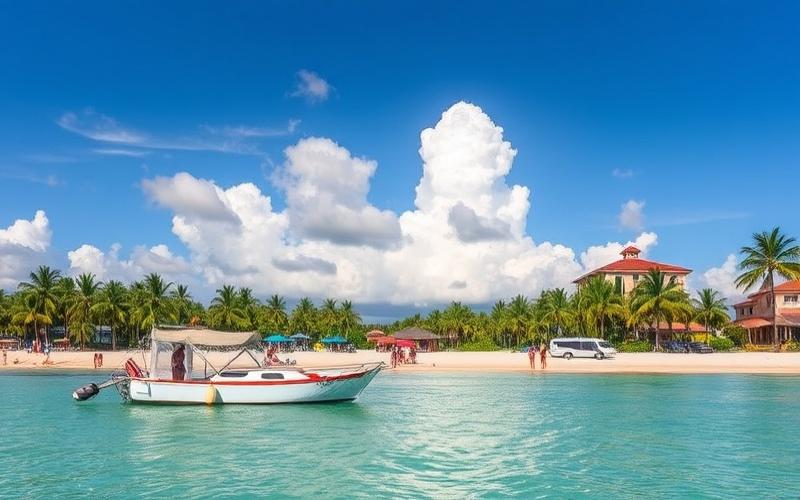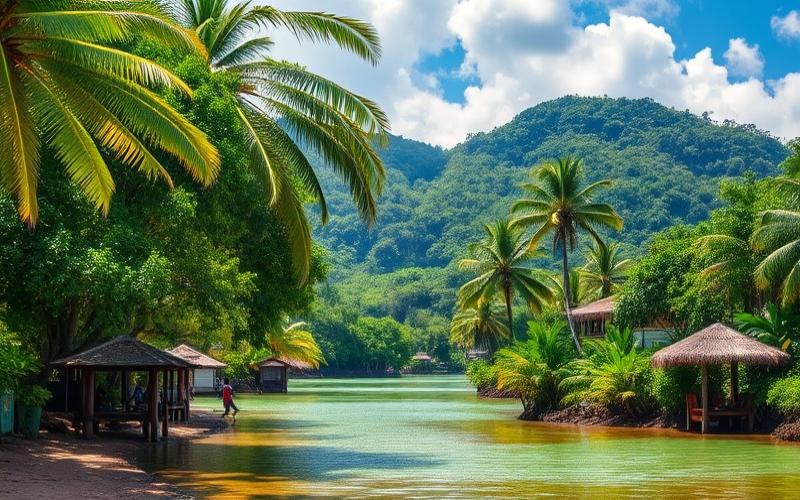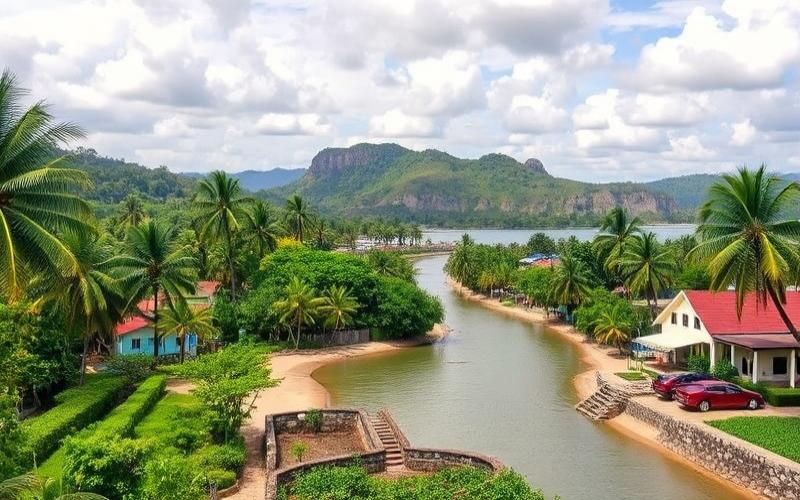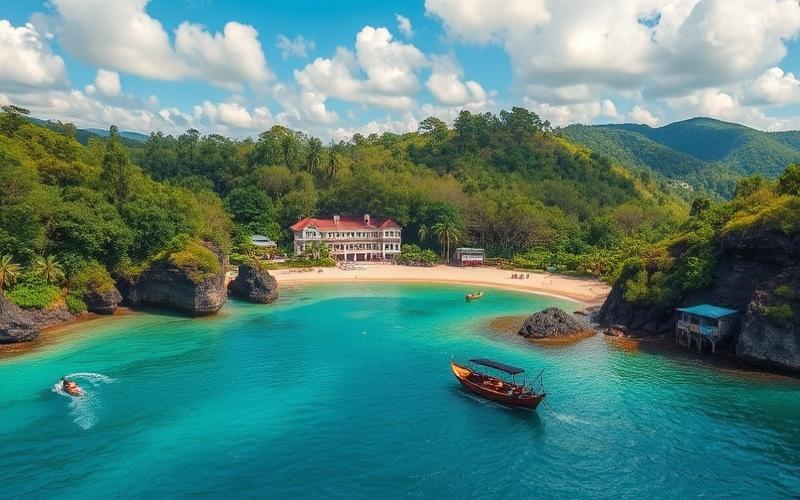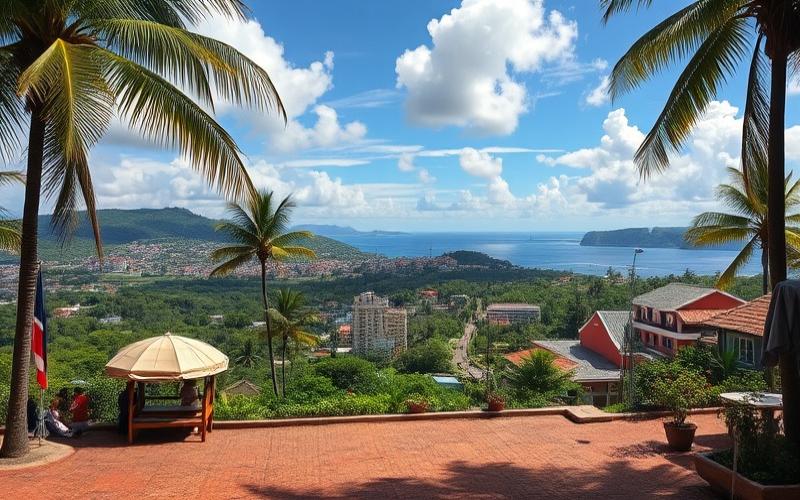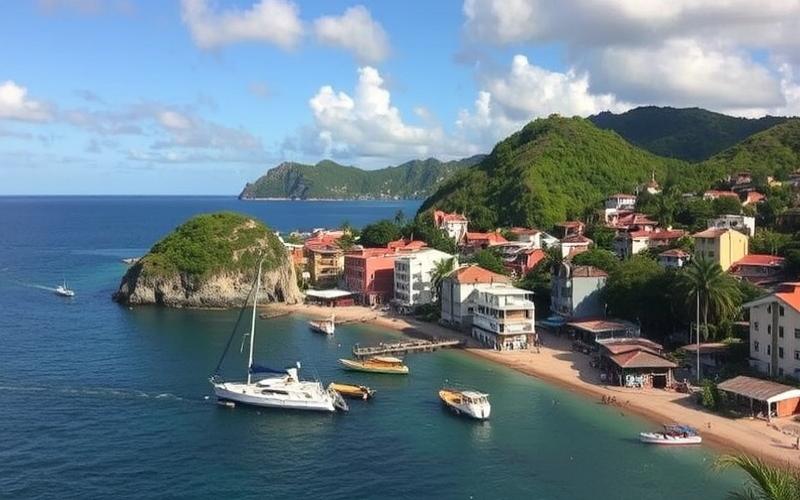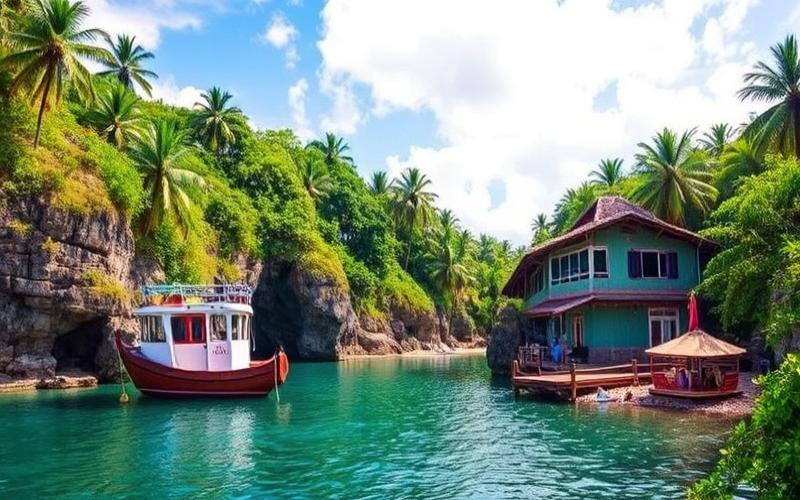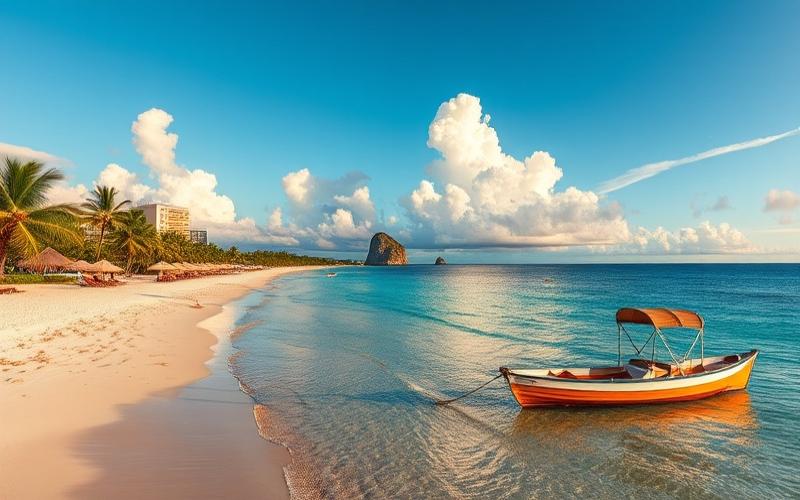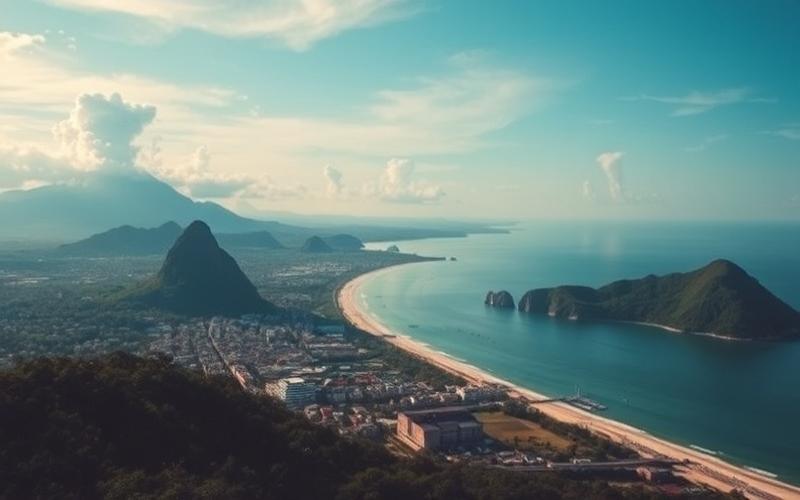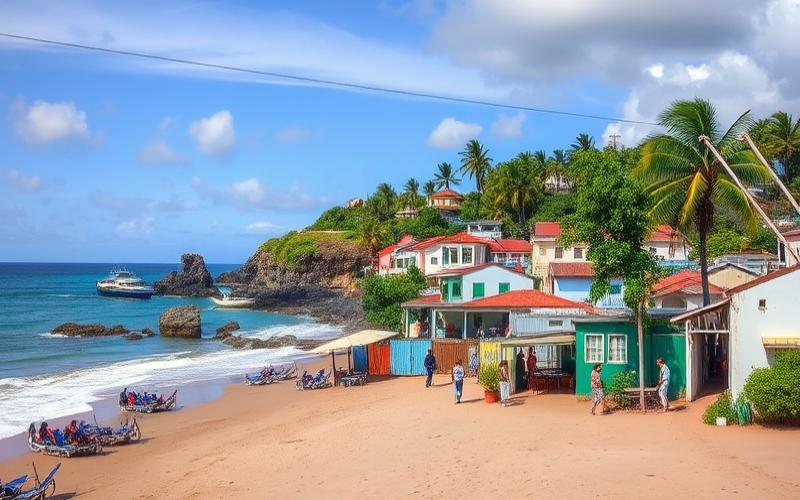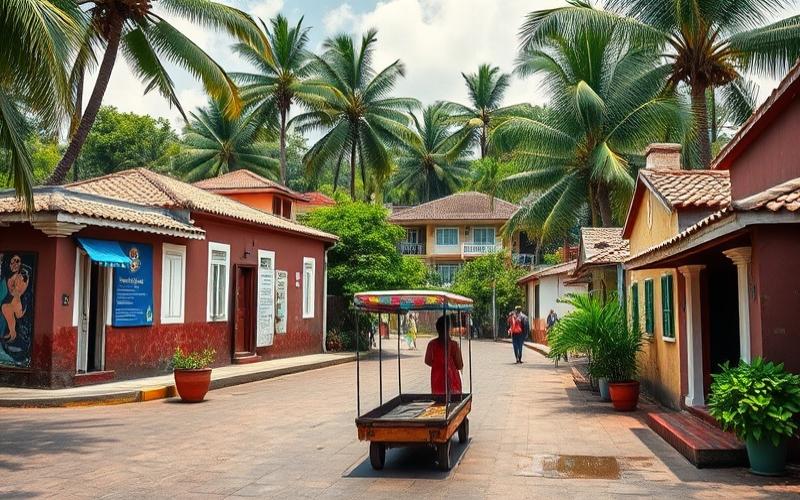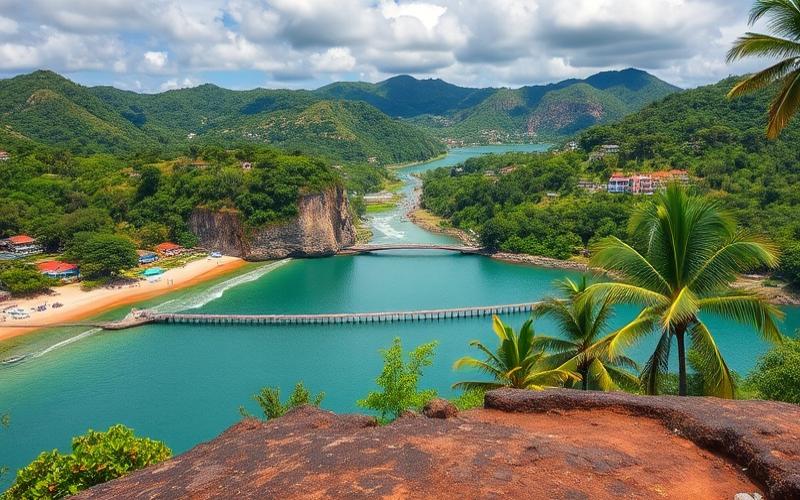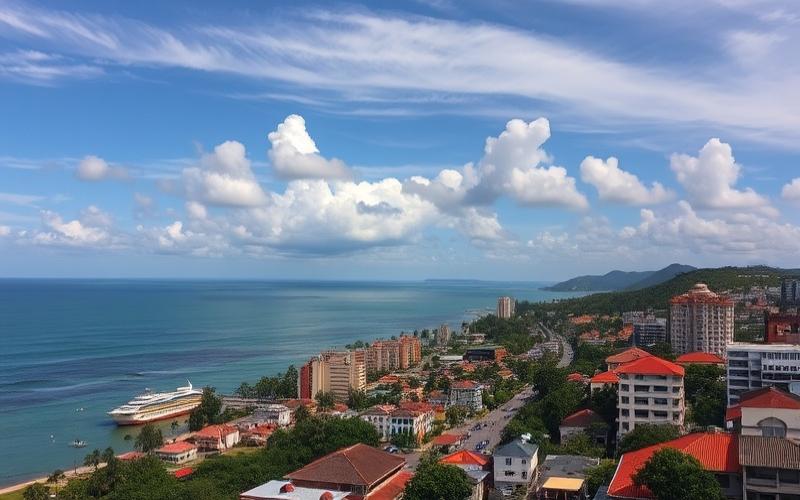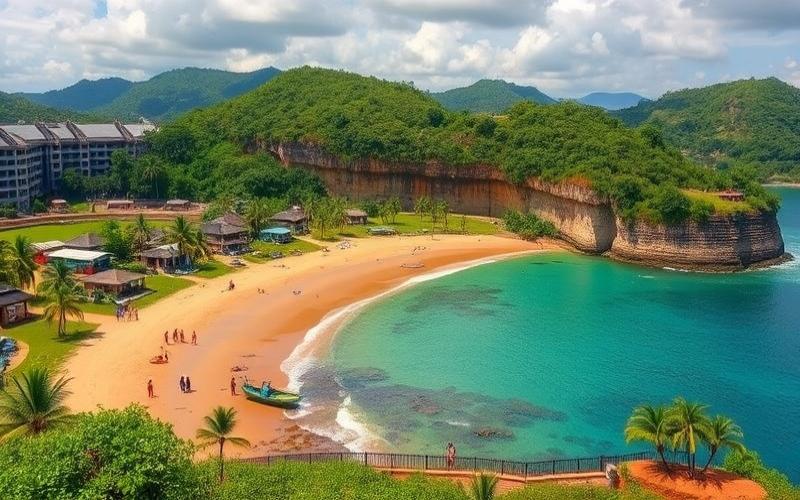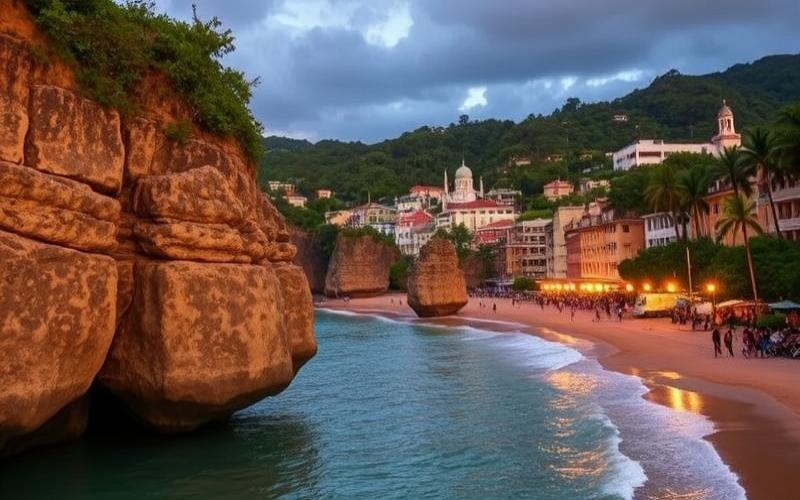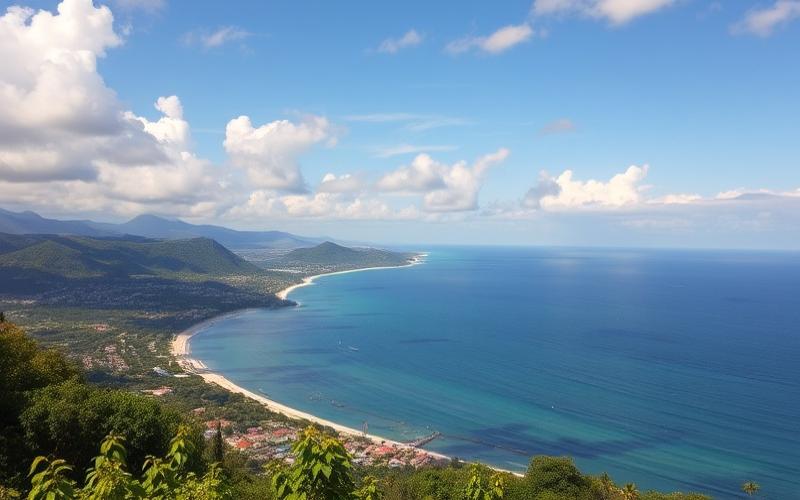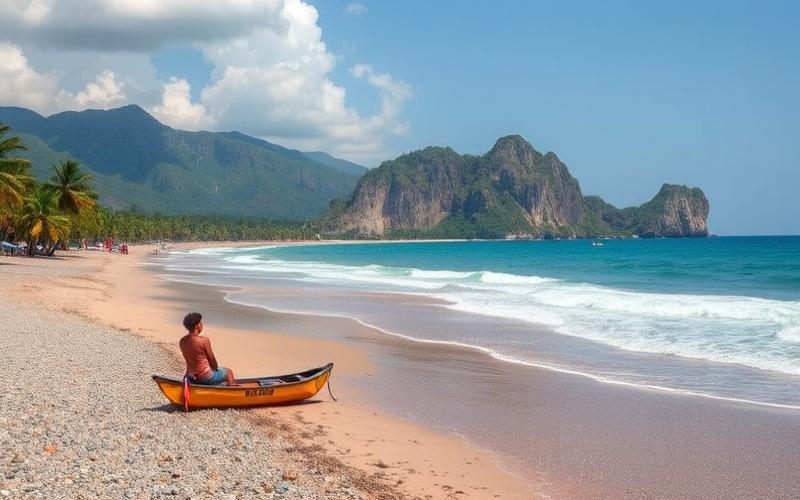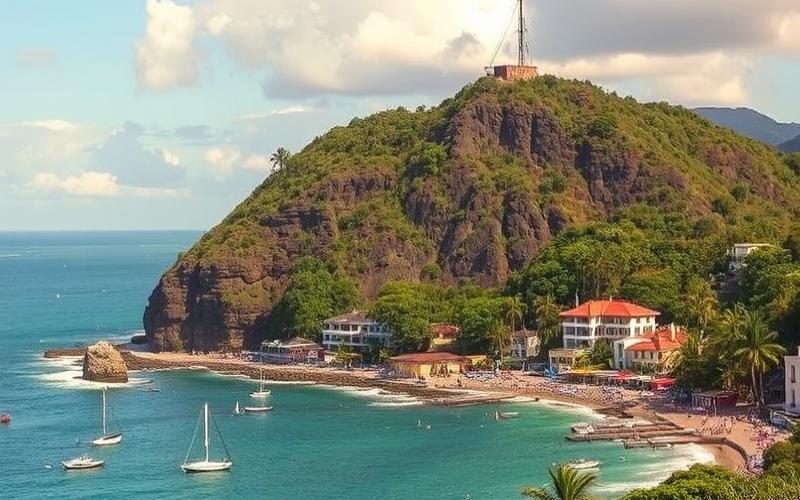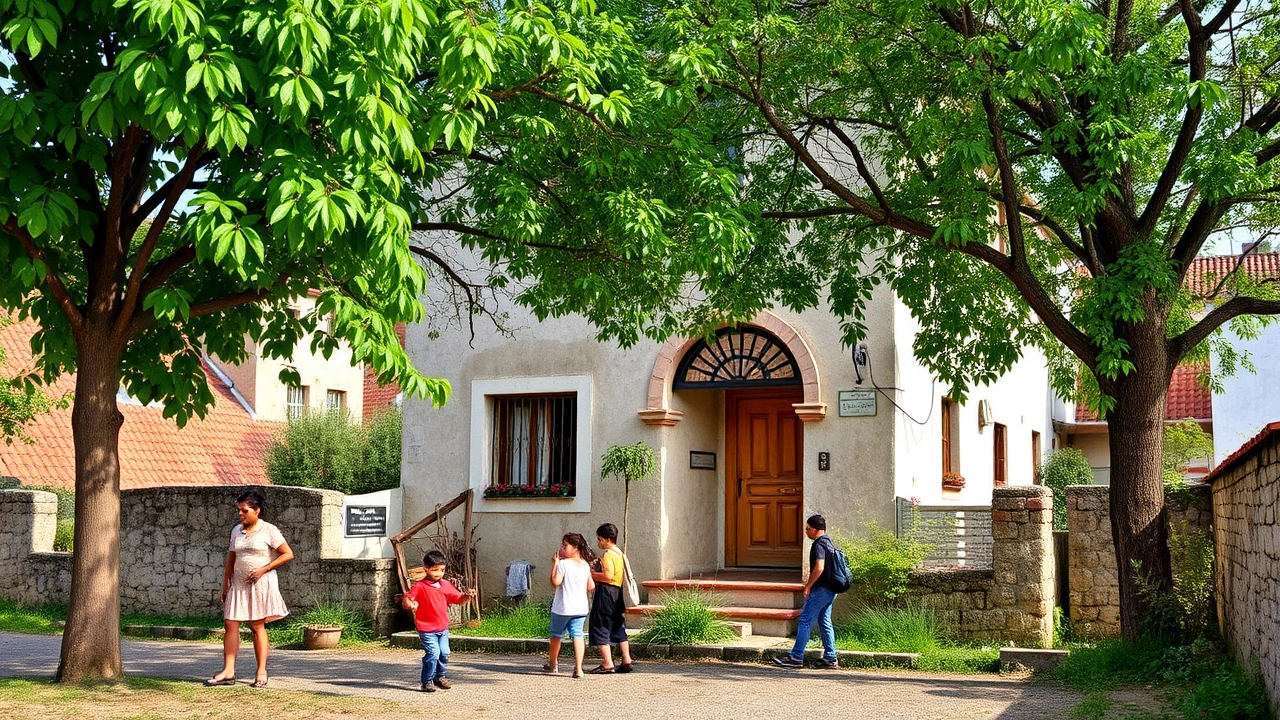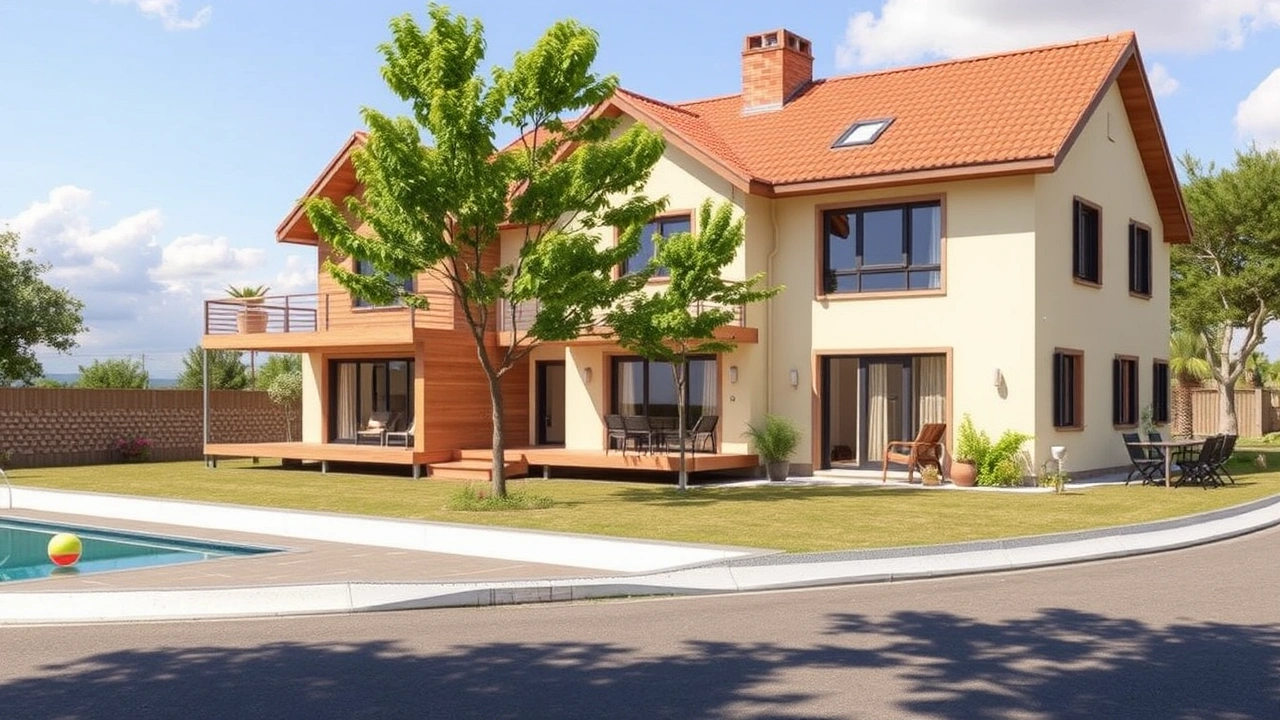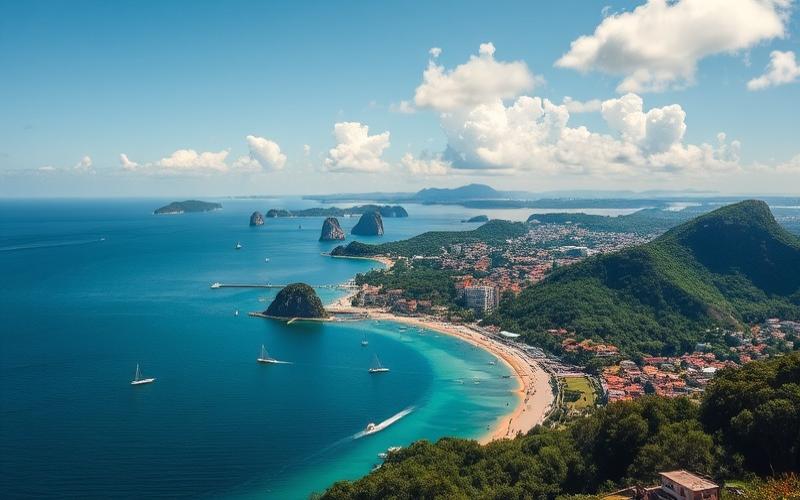
 Published on and written by Cyril Jarnias
Published on and written by Cyril Jarnias
The Dominican Republic, with its white sand beaches, tropical climate, and relaxed lifestyle, is attracting an increasing number of foreign real estate investors. Renting out property long-term in this Caribbean paradise can prove to be a highly profitable venture, provided you have a good understanding of the local market specifics and current regulations. In this article, we guide you step by step to succeed in your long-term rental venture in the Dominican Republic.
The Dominican Rental Market: Untapped Potential
Before diving into long-term rental in the Dominican Republic, it is essential to understand the dynamics of the local real estate market. In recent years, the country has experienced sustained economic growth and a tourism boom, which has positively impacted the real estate sector.
An Expanding Market
Demand for long-term rentals is constantly increasing, particularly in tourist areas like Punta Cana, Puerto Plata, or Las Terrenas. This demand is driven by several factors:
- The influx of expatriates and foreign retirees looking to settle permanently in the country
- The development of residential tourism
- The growth in the number of international students
- The rise of remote work, allowing more people to work remotely from the Dominican Republic
Attractive Rental Yields
Rental yields in the Dominican Republic are particularly interesting, potentially reaching between 5% and 8% per year depending on the area and type of property. These figures are significantly higher than those observed in many Western countries, explaining the growing appeal of this market to foreign investors.
Good to Know:
Coastal areas like Punta Cana or Sosúa generally offer the best rental yields, but competition is also stronger there. Inland cities like Santiago de los Caballeros can offer interesting opportunities with less competition.
The Legal Framework for Long-Term Rental: What You Need to Know
To succeed in your rental investment in the Dominican Republic, it is crucial to understand the legal framework governing long-term rentals in the country.
Property Rights for Foreigners
Unlike some countries, the Dominican Republic allows foreigners to buy and own real estate without any particular restrictions. You can therefore legally acquire a property to rent it out.
Types of Lease Agreements
In the Dominican Republic, there are two main types of long-term lease agreements:
- The standard lease agreement: typically lasting between 1 and 5 years
- The lease-to-own agreement: which allows the tenant to purchase the property at a pre-agreed price at the end of the lease
Landlord Obligations
As a landlord, you have certain legal obligations to comply with:
- Providing a property in good condition and compliant with safety standards
- Ensuring major repairs (roof, structure, etc.)
- Respecting the tenant’s right to peaceful enjoyment
Good to Know:
It is highly recommended to hire a local lawyer specialized in real estate law to draft your lease agreement. This will ensure that all clauses comply with Dominican legislation and protect your interests.
Establishing a Solid Lease Agreement: The Keys to Success
A well-drafted lease agreement is the cornerstone of a successful landlord-tenant relationship. Here are the essential elements to include in your contract:
Basic Information
- Full identity of the landlord and tenant
- Detailed description of the rented property (address, square footage, number of rooms, etc.)
- Lease duration and renewal conditions
Financial Aspects
- The rent amount and payment terms
- The security deposit amount
- Distribution of expenses between landlord and tenant
Specific Clauses
- Conditions of property use (prohibition of subletting, etc.)
- Responsibilities for maintenance and repairs
- Lease termination conditions
Contract Language
Although the contract can be drafted in English, it is recommended to also have a version in Spanish, which is the official language of the country. In case of a dispute, the Spanish version will prevail in Dominican courts.
Good to Know:
Don’t hesitate to include specific clauses adapted to the local context, such as provisions related to frequent power outages in certain regions of the country.
Setting the Right Price: Finding the Balance Between Profitability and Attractiveness
Determining the right rent for your property is a delicate exercise that requires a good knowledge of the local market.
Analyze the Local Market
Start by studying the prices charged in your area for similar properties. You can check online listings, contact local real estate agencies, or hire a real estate appraisal expert.
Consider Your Property’s Specifics
Several factors can influence the rent:
- Location (proximity to the beach, shops, etc.)
- Overall condition of the property and its amenities
- View (ocean, mountain, etc.)
- Included services (pool, 24/7 security, etc.)
Anticipate Expenses and Taxation
Remember to factor in the various expenses that will fall on you as the landlord:
- Property tax (IPI – Impuesto a la Propiedad Inmobiliaria)
- Homeowners association fees if your property is in a condominium
- Insurance
Good to Know:
In the Dominican Republic, it is common to request rent payment in U.S. dollars, especially for high-end rentals. This can protect you against fluctuations in the local currency, the Dominican peso.
Managing Your Property Effectively: Keys to a Harmonious Landlord-Tenant Relationship
Effective management of your property is essential to ensure the longevity of your investment and maintain good relations with your tenants.
Tenant Selection
Take the time to choose your tenants carefully. Don’t hesitate to:
- Request professional and personal references
- Verify the tenant’s financial capacity
- Conduct an in-person or video conference interview
Property Condition Report
Perform a detailed property condition report at move-in and move-out. Document the property’s condition with photos to avoid any future disputes.
Regular Maintenance
Ensure you maintain your property regularly to prevent major problems. This includes:
- Checking air conditioning systems
- Maintaining green spaces
- Painting and minor repairs
Remote Management
If you do not reside in the Dominican Republic, it may be wise to hire a local property management agency. They can handle:
- Rent collection
- Management of daily issues
- Compliance with local regulations
Good to Know:
Communication is key in property management. Make sure you are easily reachable by your tenants and respond promptly to their requests to maintain a trusting relationship.
Optimizing Your Investment: Winning Strategies
To maximize the profitability of your real estate property in the Dominican Republic, here are some strategies to consider:
Target the Right Market
Identify your target market (expatriates, long-stay tourists, students, etc.) and adapt your offering accordingly. For example, if you are targeting expatriate families, prioritize spacious homes with multiple bedrooms in quiet residential neighborhoods.
Invest in Quality
Don’t hesitate to invest in quality equipment and comfortable furniture. This will allow you to justify a higher rent and attract more stable tenants.
Offer Additional Services
Differentiate yourself by offering additional services such as:
- A regular cleaning service
- Personalized welcome upon arrival
- Advice on local life
Optimize Taxation
Inquire about the tax benefits available for real estate investors in the Dominican Republic. Some areas benefit from interesting tax incentives to encourage real estate development.
Good to Know:
The Dominican Republic offers attractive residency programs for real estate investors. Investing in real estate can pave the way for obtaining a residence permit, and eventually Dominican citizenship.
Renting out a property long-term in the Dominican Republic can be an excellent investment opportunity. With a good understanding of the local market, a solid legal framework, and effective management, you can benefit from attractive returns while contributing to the economic development of this magnificent Caribbean country.
Remember that every investment carries risks and it is crucial to research thoroughly and surround yourself with competent local professionals before getting started. With the right approach and a little patience, your real estate investment in the Dominican Republic could well become a stable and sustainable source of income.
Disclaimer: The information provided on this website is for informational purposes only and does not constitute financial, legal, or professional advice. We encourage you to consult qualified experts before making any investment, real estate, or expatriation decisions. Although we strive to maintain up-to-date and accurate information, we do not guarantee the completeness, accuracy, or timeliness of the proposed content. As investment and expatriation involve risks, we disclaim any liability for potential losses or damages arising from the use of this site. Your use of this site confirms your acceptance of these terms and your understanding of the associated risks.

